Brad Shuck - Keynote
 Brad Shuck is a globally recognized expert on employee engagement, organizational culture, and workforce well-being, known for his transformative insights into the Future of Work. As an award-winning speaker, entrepreneur, and consultant, Brad has partnered with some of the world’s most respected companies to drive meaningful cultural change and enhance employee experience. His thought-provoking, research-backed approach blends cutting-edge decision science with practical, real-world solutions that resonate across industries.
Brad Shuck is a globally recognized expert on employee engagement, organizational culture, and workforce well-being, known for his transformative insights into the Future of Work. As an award-winning speaker, entrepreneur, and consultant, Brad has partnered with some of the world’s most respected companies to drive meaningful cultural change and enhance employee experience. His thought-provoking, research-backed approach blends cutting-edge decision science with practical, real-world solutions that resonate across industries.
Having worked across a broad spectrum of sectors—healthcare, logistics, hospitality, manufacturing, higher education, and beyond—Brad brings a wealth of experience and a deep understanding of what it takes to engage today’s workforce. A tenured Full Professor at the University of Louisville and Co-Founder of OrgVitals, a Kentucky-based health and culture analytics startup.
Brad is also a proud Kentucky Colonel and holds four U.S. copyrights and a pending trademark for his pioneering intellectual property in organizational research. His dynamic, story-driven presentations inspire leaders to rethink how they engage and lead in a rapidly evolving world.
Gretchen Napier, MSHA, SHRM-SCP, FACMPE -- Senior Medical Practice Consultant, SVMIC
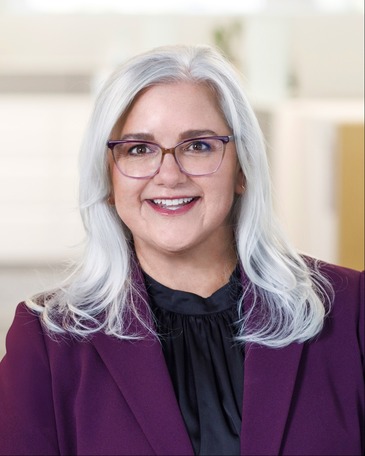 Gretchen Napier is a Senior Medical Practice Consultant at SVMIC working with physician offices to maximize their human resources by creating cultures that are clear, kind, inclusive and inspiring. She is certified with the Society for Human Resource Management (SHRM) as a Senior Certified Professional, and is a Fellow of the American College of Medical Practice Executives. She has been a healthcare leader for over 25 years.
Gretchen Napier is a Senior Medical Practice Consultant at SVMIC working with physician offices to maximize their human resources by creating cultures that are clear, kind, inclusive and inspiring. She is certified with the Society for Human Resource Management (SHRM) as a Senior Certified Professional, and is a Fellow of the American College of Medical Practice Executives. She has been a healthcare leader for over 25 years.
Gretchen earned a Bachelor’s in Human and Organizational Development from Vanderbilt and a Master’s in Healthcare Administration from UAB (University of Alabama at Birmingham).
Gretchen enjoys the empty nest life with two adult children and 2 grandchildren.
Sheri Smith, FACMPE, SHRM-CP - Senior Medical Practice Consultant, SVMIC
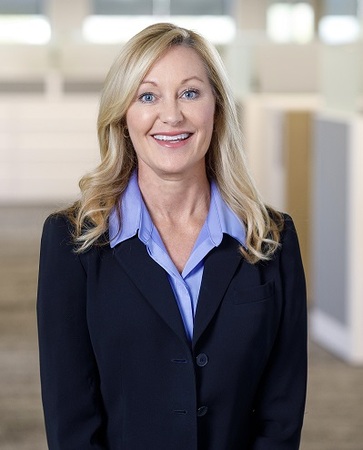 Sheri Smith is a Senior Medical Practice Consultant at SVMIC. In her 23 years at SVMIC, Sheri has provided consulting and guidance to physicians, practice executives, and their teams on critical areas including Human Resources, Electronic Health Records, practice openings and closures, harassment and discrimination issues, and overall practice operations. With more than 30 years in the medical industry, Sheri's experience spans 12 years of business management in Neurosurgical and Orthopedic practices and 6 years as an Executive Representative for an Electronic Health Records (EHR) company.
Sheri Smith is a Senior Medical Practice Consultant at SVMIC. In her 23 years at SVMIC, Sheri has provided consulting and guidance to physicians, practice executives, and their teams on critical areas including Human Resources, Electronic Health Records, practice openings and closures, harassment and discrimination issues, and overall practice operations. With more than 30 years in the medical industry, Sheri's experience spans 12 years of business management in Neurosurgical and Orthopedic practices and 6 years as an Executive Representative for an Electronic Health Records (EHR) company.
Sheri is a Fellow of the American College of Medical Practice Executives and has held leadership roles as Past President of the Tennessee MGMA, Past Chair of Presidents Council of Tennessee MGMA and Sheri is a Certified Professional by the Society for Human Resource Management (SHRM).
Laura J. Watkins, FACMPE, CPC - Senior Medical Practice Consultant, SVMIC
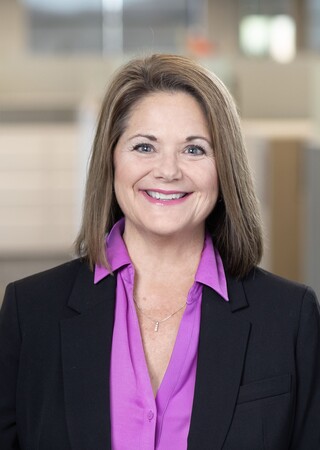 Laura J. Watkins is a Senior Medical Practice Consultant with Medical Practice Services at SVMIC. In this role, she assists physicians and their staff with revenue cycle and operational assessments, patient experience, billing, coding, and general inquiries. She has over 35 years of healthcare experience with 21 years specializing in billing and revenue cycle management. Laura obtained a bachelor’s degree in marketing from Murray State University. She is a Board-Certified Medical Practice Executive and a Fellow in the American College of Medical Practice Executives and is a Certified Professional Coder.
Laura J. Watkins is a Senior Medical Practice Consultant with Medical Practice Services at SVMIC. In this role, she assists physicians and their staff with revenue cycle and operational assessments, patient experience, billing, coding, and general inquiries. She has over 35 years of healthcare experience with 21 years specializing in billing and revenue cycle management. Laura obtained a bachelor’s degree in marketing from Murray State University. She is a Board-Certified Medical Practice Executive and a Fellow in the American College of Medical Practice Executives and is a Certified Professional Coder.
Laura is a Past President of Nashville Medical Group Management Association and has served as a Chapter Officer for the Nashville AAPC.
Lauren Ashcraft, Human Resources Manager at Semper Tek, Inc.
 We are pleased to introduce Lauren Ashcraft, Human Resources Manager at Semper Tek, Inc. With five years of comprehensive experience in healthcare and construction her expertise encompasses all facets of human resources, making her adept in various HR functions. Her diverse background allows her to navigate the complexities of employee management effectively. A particular passion of Lauren’s lies in onboarding new employees. She is dedicated to ensuring that everyone feels welcome and accepted.
We are pleased to introduce Lauren Ashcraft, Human Resources Manager at Semper Tek, Inc. With five years of comprehensive experience in healthcare and construction her expertise encompasses all facets of human resources, making her adept in various HR functions. Her diverse background allows her to navigate the complexities of employee management effectively. A particular passion of Lauren’s lies in onboarding new employees. She is dedicated to ensuring that everyone feels welcome and accepted.
Having worked with both small and large companies, Lauren brings a wealth of knowledge in managing employees.
Ryan Donohue, Strategic Advisor for NRC Health
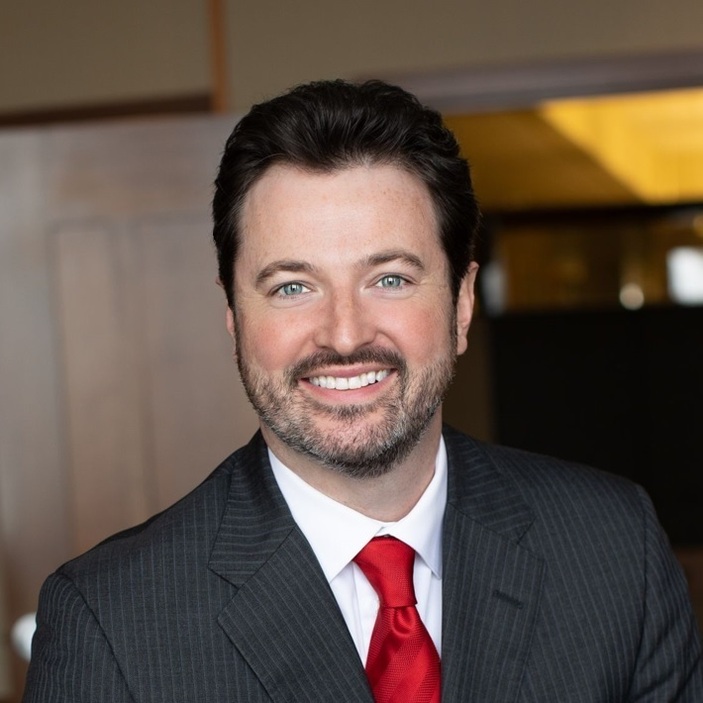 Ryan Donohue is considered a thought leader in healthcare consumerism and patient engagement. He currently serves as Strategic Advisor for NRC Health, the largest surveyor of healthcare consumers in the U.S., and as an Advisor for The Governance Institute, the leading educator of healthcare executives and trustees in the country. Ryan has authored many publications on the topic of consumerism including The New Payer: What Makes the Healthcare Consumer Tick? and The Curious Case of the Healthcare Consumer. His latest research has culminated in a book called Patient No Longer which just celebrated a second edition and will soon be available via Health Administration Press, a division of the American College of Healthcare Executives.
Ryan Donohue is considered a thought leader in healthcare consumerism and patient engagement. He currently serves as Strategic Advisor for NRC Health, the largest surveyor of healthcare consumers in the U.S., and as an Advisor for The Governance Institute, the leading educator of healthcare executives and trustees in the country. Ryan has authored many publications on the topic of consumerism including The New Payer: What Makes the Healthcare Consumer Tick? and The Curious Case of the Healthcare Consumer. His latest research has culminated in a book called Patient No Longer which just celebrated a second edition and will soon be available via Health Administration Press, a division of the American College of Healthcare Executives.
Ryan resides in Lincoln, Nebraska with his wife Andrea and their four wonderful, strong-willed children all under the age of thirteen.
Abraham Gage, MBA, MS, FACHE, FHFMA
System VP, Strategy & Business Intelligence, UofL Health
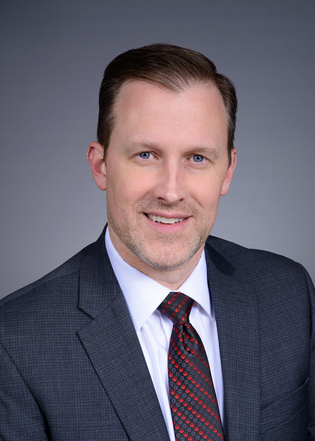 Abraham Gage has 15 years of diverse experience in the healthcare industry across the United States, working with payors, medical device manufacturers, and providers. He is a board-certified medical practice executive with the American College of Medical Practice Executives and is a Fellow of both the American College of Healthcare Executives and the Healthcare Financial Management Association.
Abraham Gage has 15 years of diverse experience in the healthcare industry across the United States, working with payors, medical device manufacturers, and providers. He is a board-certified medical practice executive with the American College of Medical Practice Executives and is a Fellow of both the American College of Healthcare Executives and the Healthcare Financial Management Association.
He works as the Vice President of Strategy & Business Intelligence at UofL Health and is an adjunct professor with UofL's Graduate School of Business where he teaches graduate-level analytics and management courses. He holds an undergraduate degree from BYU, an MBA from Duke University, and a Masters in Analytics from the University of Louisville.
Brian K. Garver - Senior Vice President, KeyBridge Medical Revenue Care
 Brian Garver is a passionate business leader in the Healthcare Revenue Cycle space with over 20 years of leadership experience. Brian is also nationally recognized as an expert facilitator and speaker focused on Patient Experience, Organizational Culture and Business Leadership. In his presentations, Brian delivers actionable content with an engaging, compelling message that will inspire new, thoughtful changes within your team.
Brian Garver is a passionate business leader in the Healthcare Revenue Cycle space with over 20 years of leadership experience. Brian is also nationally recognized as an expert facilitator and speaker focused on Patient Experience, Organizational Culture and Business Leadership. In his presentations, Brian delivers actionable content with an engaging, compelling message that will inspire new, thoughtful changes within your team.
His ability to touch each and every attendee with humor, emotion, empathy and care have made his presentations nationally recognized and highly sought after. His powerful speaking engagements have taken him across the country from New York to Los Angeles with many stops in between.
Brian resides in Lima, Ohio and is an active member of the American Association of Healthcare Administrative Management (AAHAM) and the Healthcare Financial Management Association (HFMA). He also hosts the live podcast series… “The Revenue Cycle Rundown”.
Stephanie Hall, Credentialing Manager for Kentucky Primary Care Association
 Stephanie Hall is the Credentialing Manager for Kentucky Primary Care Association Clinically Integrated Network. With a wealth of experience in the field of credentialing specialists, provider enrollment, and operations, Stephanie Hall manages credentialing for roughly 2000 providers. She prides herself on streamlining the relationship between credentialing and provider enrollment, resulting in earlier provider effective dates and fewer payee issues.
Stephanie Hall is the Credentialing Manager for Kentucky Primary Care Association Clinically Integrated Network. With a wealth of experience in the field of credentialing specialists, provider enrollment, and operations, Stephanie Hall manages credentialing for roughly 2000 providers. She prides herself on streamlining the relationship between credentialing and provider enrollment, resulting in earlier provider effective dates and fewer payee issues.
Connie Leffler, CMA, CMM, FACMPE - KMGMA ACMPE Forum Representative
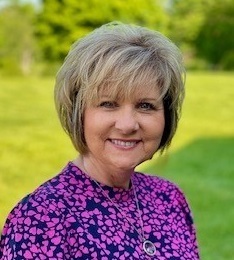 Connie Leffler, CMA, CMM, FACMPE, has over 25 years experience in Practice Management. She is Board Certified and a Fellow with The American College of Medical Practice Executives.
Connie Leffler, CMA, CMM, FACMPE, has over 25 years experience in Practice Management. She is Board Certified and a Fellow with The American College of Medical Practice Executives.
Connie has been an active member with Local and State MGMA Chapters for over 20 Years. Connie is currently the ACMPE Forum Rep for KMGMA and an active MGMA member.
Cory Meadows JD, Vice President Medical Affairs Kentucky Medical Association
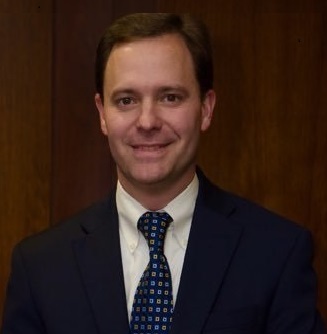 Cory Meadows is the Deputy Executive Vice President and Director of Advocacy at the Kentucky Medical Association. Meadows joined KMA in 2011 and since that time has been responsible for managing the Association’s legislative advocacy efforts and legal activities. He also speaks on a number of topics related to physician practice management, medical/legal issues, access to care, compliance, and the current state of the health care industry. Prior to joining KMA, Meadows practiced law in both the public and private sectors and served in several key positions within the Fletcher Administration.
Cory Meadows is the Deputy Executive Vice President and Director of Advocacy at the Kentucky Medical Association. Meadows joined KMA in 2011 and since that time has been responsible for managing the Association’s legislative advocacy efforts and legal activities. He also speaks on a number of topics related to physician practice management, medical/legal issues, access to care, compliance, and the current state of the health care industry. Prior to joining KMA, Meadows practiced law in both the public and private sectors and served in several key positions within the Fletcher Administration.
A native of Clay City, Kentucky, Meadows earned an undergraduate political science degree from the University of Kentucky and a law degree from the Brandeis School of Law at the University of Louisville.
Ashkan Nikou, Head of Security Bluegrass Orthopaedics
 Ashkan Nikou is a licensed Security Officer and Professional. Ashkan is in his 8th year in the US Army, currently as a Captain. He has a degree in Criminal Justice with a background in Homeland Security. He has been in security for 8 years with both management and leadership experience. He is dedicated to providing top-tier security and skills to protect his personnel and patients.
Ashkan Nikou is a licensed Security Officer and Professional. Ashkan is in his 8th year in the US Army, currently as a Captain. He has a degree in Criminal Justice with a background in Homeland Security. He has been in security for 8 years with both management and leadership experience. He is dedicated to providing top-tier security and skills to protect his personnel and patients.
Workshop Descriptions
KEYNOTE
The Future of Work in Healthcare: Engaging Teams, Driving Well-being, and Leading Differently
In today’s rapidly changing healthcare environment, engaging employees is no longer a “nice to have”—it’s essential for innovation, resilience, and patient outcomes. Yet, despite knowing the value of engagement, many leaders struggle with practical implementation in high-stakes, high-stress environments. Drawing on cutting-edge research in behavioral economics and decision science, Brad Shuck will share actionable strategies for cultivating deep engagement and well-being across healthcare teams.
Through powerful stories and data-driven insights, Shuck will challenge leaders to embrace a new paradigm of work—one that prioritizes purpose, flexibility, and well-being. While the healthcare landscape will continue to evolve, this moment presents an unprecedented opportunity to lead differently and create a lasting impact. Leaders who can harness the potential of an engaged workforce won’t just improve outcomes today—they’ll shape the future of healthcare for generations.
Prepare to be inspired, challenged, and equipped with the tools to lead in a way that transforms not just your organization, but the lives of those you serve.
Learning Objectives:
- Understand the Behavioral Drivers of Engagement:
Analyze key principles of behavioral economics and decision science that influence employee engagement in the healthcare environment.
- Apply Research-Backed Strategies to Improve Engagement:
Explore practical, evidence-based approaches for fostering high levels of engagement and well-being among healthcare teams, even in times of uncertainty.
- Enhance Leadership Practices for the Future of Work:
Identify leadership behaviors and mindsets that empower teams, promote adaptability, and sustain motivation in a rapidly changing healthcare landscape.
- Drive Organizational Outcomes through Culture and Well-being:
Learn how to create a workplace culture that enhances employee well-being and directly contributes to improved patient outcomes and organizational resilience.
- Develop a Long-Term Vision for Employee Experience:
Formulate actionable strategies for creating a lasting impact on the workforce by aligning engagement efforts with organizational goals and the evolving nature of work in healthcare.
Elevating the Onboarding Experience: Strategies for Seamless Integration
In a world where talent is hard to find it is more important than ever to successfully onboard and integrate new employees. Proper onboarding will motivate employees to stay longer and be productive sooner.
Learning Objectives:
- Gain a deep understanding of who should be involved in the onboarding process
and when their involvement should begin.
- Evaluate the process of acclimating new employees to your organization and
providing the appropriate levels of training.
- Develop a strong onboarding plan that encompasses more than just their first few
days to help retain your new employees.
- Learn how to create checklists and agendas for each of the key onboarding stages
including pre-start day, performance management phases, reviews and long-term
development.
- Facilitate integration into the team.
Brave New World: Exploring Post-Election Healthcare Through the Eyes of Consumers
Every American patient wants to feel wanted. To feel valued in their experience and treated as a unique person. So what happens when we don’t treat people as people? When patients become profit, humans become aggregates. We’ll deep dive into six specific dangers of de-personalizing care and explore the effects on patients and their families. We’ll pay particular attention to one danger now known as the Brand Blur: an emerging body of research that suggests post-COVID consumers are having difficulty navigating and assigning value to brands, especially in healthcare. We’ll zoom in on Kentucky and look at the statewide perspective of Kentuckians against the national backdrop. We’ll outline and illuminate these blockers of personalization and explore the new opportunities we must provide truly personalized care to every patient, every time.
Learning objectives:
- Explain de-personalized care in the context of patient expectations
- Expose the negative effects of de-personalized care across the healthcare journey
- Explore new opportunities to remove barriers to personalization and meet (or exceed) consumer expectations for a better patient experience for all
Transforming YOUR Team into a Performance Powerhouse!
The key to success is the people that surround you. Learn how to build an effective, high-performing team that delivers results. Teams have always been, and will always be, an essential ingredient for building a successful business. But building great teams isn't something that just happens. It takes planning and ongoing effort to get them right--and to keep them that way.
Each team member plays a role and each individual is part of the whole. The combined efforts of their team members not only produce superior results, they also build a sense of solidarity within their organizations.
Learning Objectives
This session will provide you with the knowledge to build an effective team for ongoing success:
- The 10 Keys to a High Performing Team
- Hire the best possible individuals and motivate mid-performers to become rock stars
- Establish KPIs for team accountability
Meaningful Data Analysis in the Healthcare Delivery Sector
Participants will learn about how unique concatenations of payor price transparency data, claims data, and quality data can drive improvements in operations, finances, and inform strategic deployment of resources.
Learning Objectives
- participants will come away with a better understanding of the critical importance of knowing your data and any limitations with completeness, accuracy, and/or timeliness.
- participants will come away with a better understanding of how to generate value from payor price transparency data, claims data, and quality data

